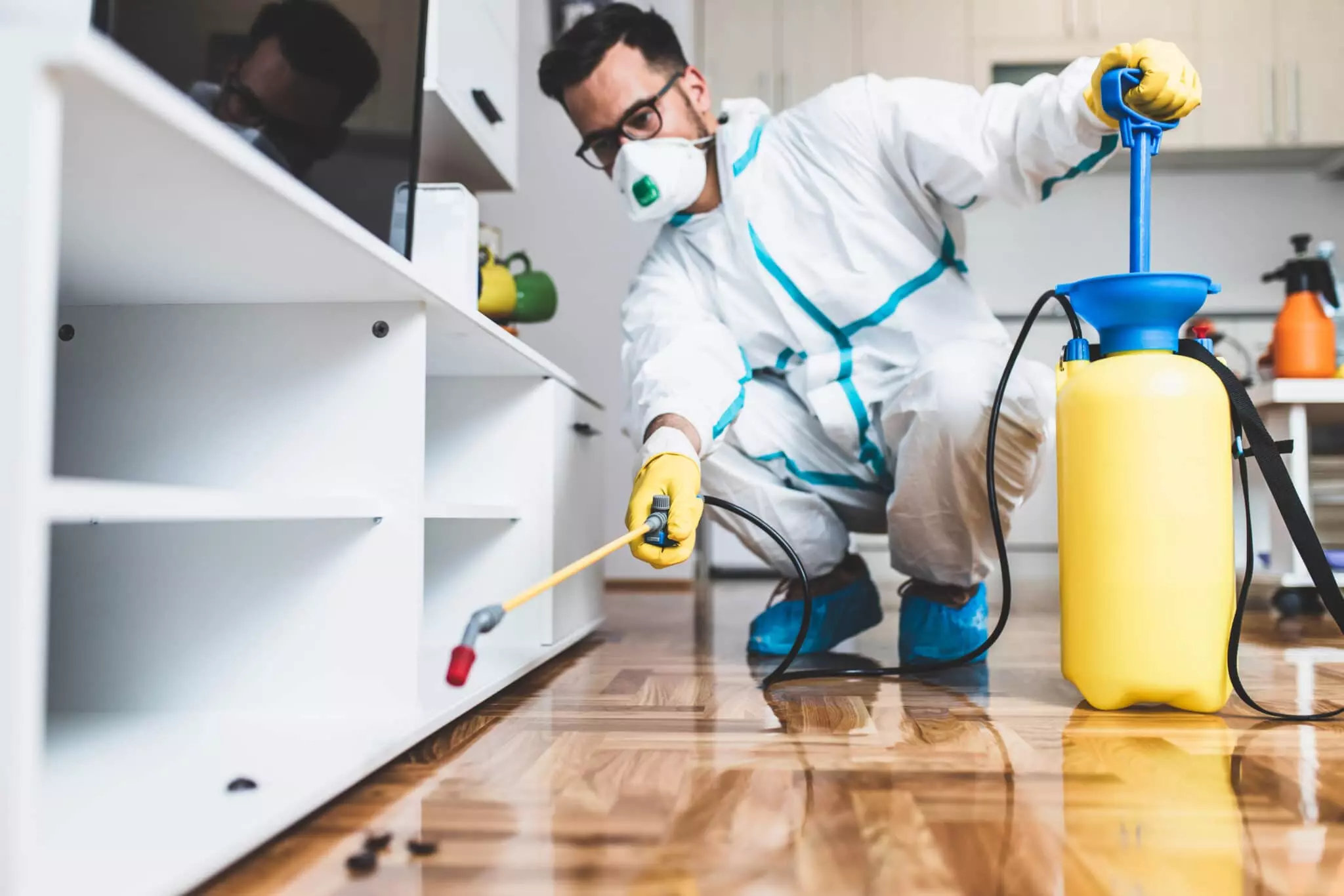Effective Bug Control Services: A Comprehensive Check Out Elimination Techniques and Prevention Procedures
In the realm of bug control solutions, the effective monitoring of problems requires a meticulous strategy that integrates various methods and procedures for both eradication and avoidance. From Integrated Parasite Management (IPM) methods that focus on lasting options to chemical elimination methods created for targeted elimination, the collection against insects is large and complex. Biological control approaches and physical prevention actions supply alternate courses to successfully combating unwanted trespassers. Nevertheless, the trick to a detailed parasite control strategy exists not simply in the methods themselves, however additionally in the careful expert assessment procedures that precede and inform them. By comprehending the complexities of each method and how they interplay, one can really understand the complexity and performance of modern insect control services.

Integrated Bug Monitoring (IPM) Strategies
Integrated Parasite Administration (IPM) Strategies include an extensive approach to pest control that concentrates on prevention, control, and tracking approaches to efficiently take care of pest populaces. By integrating different techniques, IPM intends to decrease the effect of parasites while likewise minimizing the dependence on chemical pesticides. Prevention lies at the core of IPM, stressing practices like appropriate cleanliness, upkeep of health, and sealing access points to hinder insects from infesting structures.
Chemical Extermination Methods
Chemical elimination strategies are typically used in insect control solutions to efficiently get rid of insect populaces that pose a danger to human health and residential or commercial property. These methods involve the use of numerous chemical materials especially designed to target and eliminate insects such as insects, rodents, and various other undesirable animals. The application of pesticides, pesticides, rodenticides, and various other chemical representatives is thoroughly regulated to guarantee maximum effectiveness while reducing risks to humans, animals, and the environment.
One of the key benefits of chemical elimination strategies is their capacity to supply quick and targeted results, making them particularly useful in cases of severe problems or urgent pest control requirements - a1 pest control in portland oregon bed bugs. Nonetheless, it is vital to stress the significance of proper handling, application, and disposal of these chemical products to avoid unintended injury
Additionally, incorporated parasite monitoring (IPM) strategies frequently integrate chemical extermination techniques with various other techniques such as sanitation, environment alteration, and organic controls to produce a lasting and detailed parasite control method. By incorporating chemical elimination methods judiciously within an IPM structure, pest control solutions can efficiently take care of parasite populaces while lessening potential dangers to human health and the atmosphere.
Organic Insect Control Techniques
Utilizing all-natural killers and parasites to take care of insect populations is a sustainable approach known as organic pest control. This technique harnesses the natural mechanisms of the ecological community to control bug populations without counting on synthetic chemicals. One typical biological control technique entails introducing natural opponents of the target parasite species, such as ladybugs for aphid control or nematodes for termite invasions. These all-natural killers feed on the bugs, aiding to maintain their populations in check.
Another effective biological control strategy is the use of microbial insecticides. These are naturally occurring microorganisms, such as bacteria, fungis, and infections, that particularly target and infect certain pest types. By using these microbial representatives, pest populations can be successfully lowered without creating or harming beneficial organisms damage to the atmosphere.
Physical Bug Prevention Measures
Implementing physical parasite prevention measures involves using barriers and architectural adjustments to deter parasites from infesting a property or entering (a1 portland bed bug exterminator). One efficient technique is sealing all possible entrance factors such as spaces around doors, home windows, and utility infiltrations. Setting up deemak control door moves, displays on home windows, and securing splits in the foundation can aid avoid parasites like bugs and rats from acquiring accessibility indoors. Furthermore, keeping a clean and clutter-free environment is vital as pests are drawn in to food resources and hiding areas. Regularly examining and fixing any damaged displays, vents, or roof ceramic tiles can likewise aid in keeping insects out.
An additional physical avoidance procedure is using obstacles like secure fencing to keep bigger insects such as raccoons or deer away from the residential or commercial property. Setting up mesh or cable screens around gardens can safeguard plants from being damaged by parasites. Proper waste administration, including safeguarding wastebasket with tight-fitting lids, is necessary in preventing bugs like rats, raccoons, and pests. By executing these physical pest avoidance actions, homeowner can substantially minimize the risk of pest problems and the damages they can cause.
Specialist Insect Examination Procedures
Conducting complete and systematic insect assessments is a basic facet of specialist insect administration procedures. Professional pest inspectors are educated to carefully analyze buildings for signs of infestations, identifying pest varieties, access points, and conducive problems.

Conclusion
To conclude, effective bug control solutions use a selection of strategies, consisting of Integrated Bug Monitoring approaches, chemical elimination approaches, organic controls, and physical avoidance actions. Specialist pest examination procedures play a crucial role in recognizing and addressing pest concerns in a prompt way. By carrying out a mix of these methods, home owners can successfully manage and prevent parasite problems.
From Integrated Bug Monitoring (IPM) strategies that focus on lasting options to chemical extermination techniques made for targeted removal, the toolbox against bugs is huge and multifaceted.Integrated Pest Monitoring (IPM) Methods include a comprehensive method to pest control that concentrates on control, prevention, fleas and monitoring methods to properly handle pest populaces.Chemical extermination methods are commonly used in insect control solutions to properly remove pest populaces that pose a risk to human health and building.Utilizing all-natural predators and bloodsuckers to manage bug populations is a sustainable method understood as organic bug control.In conclusion, effective bug eliminate mice control solutions employ a range of techniques, including Integrated Parasite Administration techniques, chemical extermination approaches, organic controls, and physical prevention procedures.